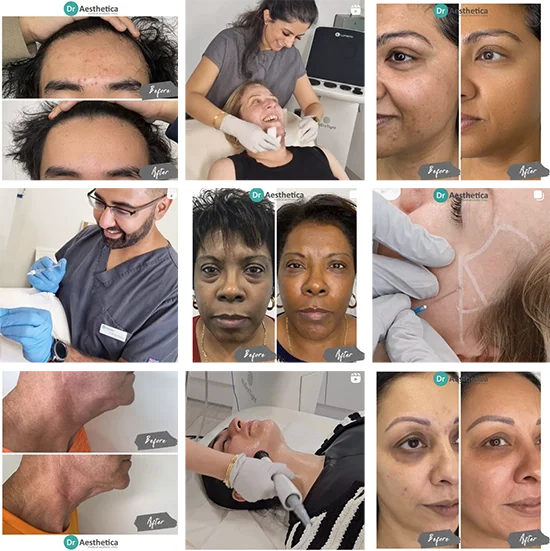Hypnosis is a state of focused attention where a person loses the power of voluntary action. It involves guiding the mind into a trance-like state where the subconscious mind is more open to suggestion.
During a Bruxism hypno-session a trained hypnotherapist will use various techniques, such as guided imagery and suggestion. This helps a person enter a state of relaxation and focus their mind on a particular goal or outcome. This may involve visualisation of positive outcomes or changing negative beliefs to help the person achieve a desired result.
Hypnosis is often used as a complementary therapy to address a variety of physical and emotional conditions. These conditions include anxiety, depression, chronic pain, and behavioural issues. It's thought it works by tapping into the power of the subconscious mind to change patterns of thought and behaviour.
Hypnosis is not a form of mind control and the person undergoing hypnosis is always in control of their thoughts and actions.
Hypnosis can be a powerful tool for promoting positive change and personal growth. It can help individuals overcome limiting beliefs and behaviours, manage stress and anxiety, and improve health and well-being.
The Use of Hypnosis In Treating Bruxism
Hypnosis use for Bruxism has increased, especially for cases where stress and anxiety cause Bruxism. Hypnotherapy can tackle the underlying psychological factors that may be contributing to teeth grinding or clenching. It helps to manage the condition by reducing the frequency and intensity of Bruxism episodes.
During a session the therapist will help the individual relax and focus their mind on reducing their teeth grinding or clenching. This may involve visualisation techniques, such as imagining a relaxed jaw and releasing tension in the facial muscles, or positive suggestion to promote healthy sleep habits and stress reduction.
Research has shown that hypnosis can be an effective treatment for Bruxism. A study by NIH found that patients who underwent hypnotherapy experienced a reduction in the number of Bruxism episodes.

Benefits of Using Hypnosis for Bruxism Treatment
Using hypnosis as a treatment has a lot of potential benefits, these include:
- Stress reduction - Bruxism is often associated with stress and anxiety. Hypnosis can help manage stress by promoting relaxation and reducing tension in the body. This could help to ease Bruxism pain.
- Behaviour modification - Hypnosis could change Bruxism behaviours (teeth grinding and clenching). By helping individuals become more aware of their behaviour and providing suggestions for more appropriate ways to manage stress, hypnosis can be an effective way to change these patterns of behaviour.
- Improved sleep: Bruxism can interfere with sleep quality and lead to daytime fatigue. Hypnosis can help individuals improve sleep quality by reducing stress and promoting relaxation.
- Non-invasive - Unlike other treatments for Bruxism hypnosis is non-invasive and does not need the use of any external devices or drugs. No need for any dental appliances or medication!
- Cost-effective - Hypnosis can be a value for money treatment option. If you are an individual who is unable to afford more expensive treatments it may be something you want to try.
Hypnosis can be effective in reducing the frequency and intensity of Bruxism episodes, but it is not an isolated treatment and may need other treatments alongside it. Additionally, individual results may vary and not everyone may respond to hypnosis in the same way.
Finding a Qualified Hypnotherapist for Bruxism Treatment
Finding a therapist for your Bruxism hypnosis can seem difficult but there are several steps you can take to ensure that you find a skilled professional. First
Check google maps for the highest rated hypnotherapists in your local area then for each one make sure to:
- Ask for referrals - Ask your healthcare provider, dentist, or friends and family members or anyone you know who may have been to the hypnotherapist
- Check credentials - Check they are certified by professional organisations like The National College of Hypnosis & Psychotherapy.
- Read reviews - Look for online reviews and testimonials from previous clients. This helps you picture the customer experience better.
This article was read and reviewed by the face of DR Aesthetica himself - DR Baldeep Farmah.

Tips for Managing Bruxism On a Day-to-Day Basis
In the meantime though, before your appointment let me give you some quick action based tips you can apply today to ease your Bruxism symptoms.
- Manage stress through relaxation techniques like meditation, deep breathing, or yoga.
- Limit caffeine and alcohol consumption.
- Maintain a regular sleep schedule.
- Apply a warm compress to the jaw area to reduce tension.
- Be aware of jaw clenching and try to relax the muscles.
- Massage the jaw muscles to reduce tension..
An Alternative Treatment for Bruxism
If you're looking for a more effective and longer lasting solution than Bruxism hypnosis or you think that stress and anxiety aren’t the cause of your Bruxism then a Botox treatment may be perfect for you. You can view a list of potential treatments for Bruxism here. However do you Want a treatment that:
- Lasts approximately 6 months?
- Only requires 24 hours of downtime
- Is so painless that it requires no anaesthetic
- Displays results by 4 weeks
Then a Botox treatment may be perfect for you! View more information on a Botox treatment here:


